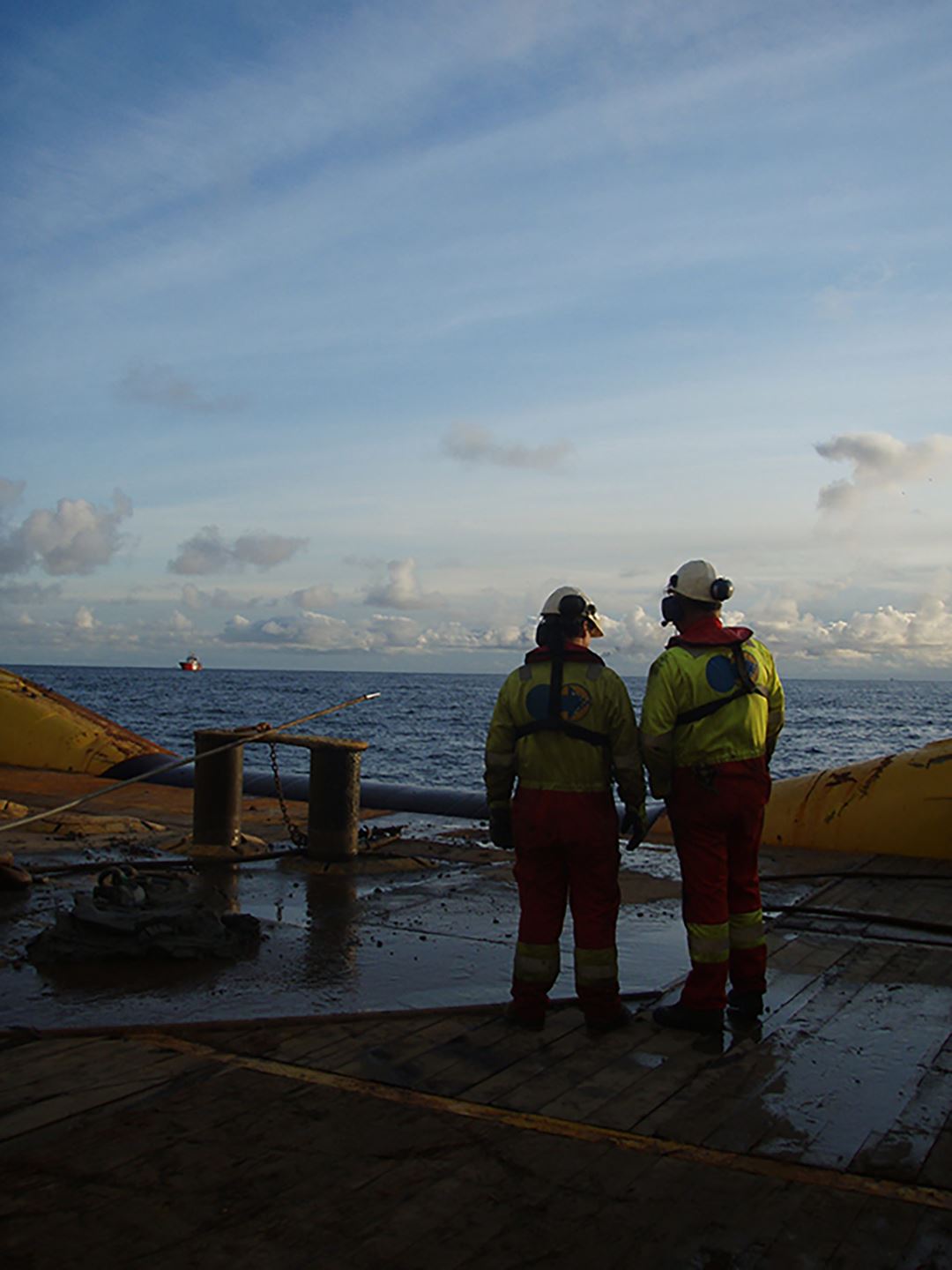Intersikk studies the health and safety of seafarers on service vessels that are performing services for, and in interaction with, other companies.
Unequal terms
The conditions on service vessels are influenced by contract terms and routines in the other companies. Previous studies show that contractors/suppliers, such as service vessels, have poorer conditions and greater risk of injuries and accidents than employees in the companies that purchase the services.
In Intersikk, the interorganisational operations will be studied through surveys, interviews, document analysis, and risk assessments. The project focuses on seafarers, a large occupational group in Norway, who have a workday that involves high risk. Measures to reduce risk for this group will also benefit seafarers on other service vessels.
Various relevant sectors include offshore wind, offshore petroleum, tugboats and aquaculture.

Improved health and safety for seafarers
The purpose is to identify measures that can improve the health and safety of seafarers in interorganizational operations. The work is divided into four activities:
- Describe challenges for interorganizational work
- Provide experience-based knowledge about health and safety for seafarers in interorganizational operations
- Provide knowledge about risk factors for seafarers
- Develop measures that can be applied by seafarers and companies in their work.
Improved health and safety greatly benefit individuals, employers, and society. Research and seafarers have expressed a need for measures that secure conditions in interorganisational operations, power relations, structures, and routines.
The project will benefit seafarers in aquaculture, but also all those working in interorganisational operations, and seafarers in general. To ensure the benefits of the project work, seafarers, companies, trade unions, and authorities will be involved in the project's activities.

